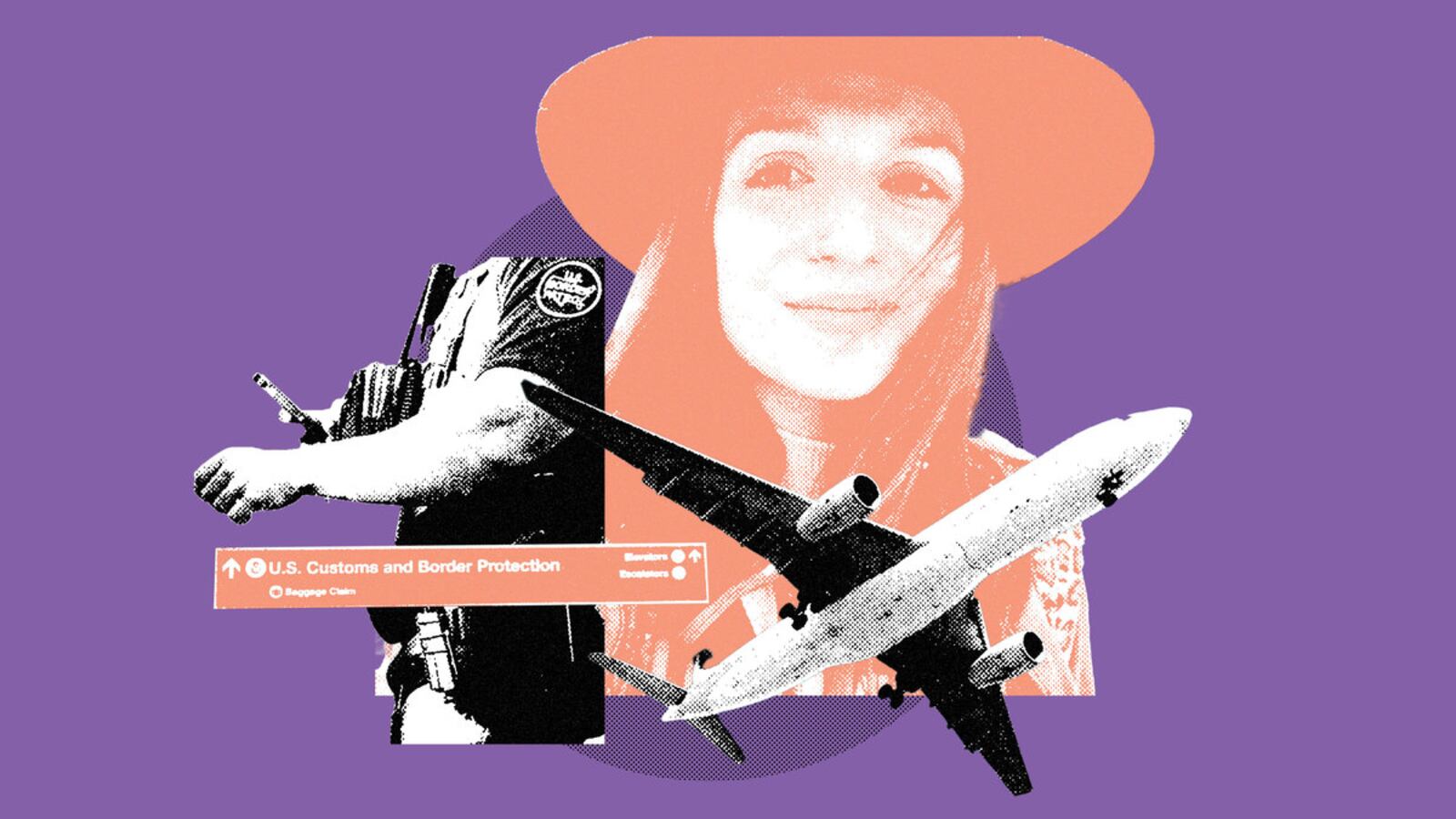Madolline Gourley set off an international outcry when she said a U.S. Customs and Border Protection officer asked her if she’d recently had an abortion when she traveled through Los Angeles two months ago.
Now, the agency is denying her claim and insisting the officer asked only if she had suffered a pregnancy loss—which it says is standard procedure for any woman being detained at a border crossing.
“CBP denies any wrongdoing,” an agency spokesperson told The Daily Beast. “The officer acted with integrity, respect, professionalism and in accordance with U.S. laws and regulations.”
The agency launched an internal investigation in July, after Gourley, a 32-year-old web editor from Australia, went public with the story of her detention at the Los Angeles International Airport. Gourley told The Guardian she was traveling through the airport on her way to Montreal when border officers at the airports flagged her case and detained her for additional questioning.
Gourley says officers asked her about her finances, her work history, and—to her surprise—whether she was pregnant or had recently had an abortion.
“My first thought was, ‘Why are you asking that?’” Gourley told The Daily Beast. “To ask that of anyone is inappropriate to begin with, but it was just especially bizarre given the set of circumstances.”

Madolline Gourley has chronicled her journey of cat-sitting around the world on her blog.
Courtesy of Madolline GourleyBut an agency spokesperson said the officer involved asked Gourley if she had recently lost a pregnancy—something he said the agency is required to ask of everyone held in its detention, no matter how long.
The spokesperson pointed to a directive issued last November about the care of “pregnant, postpartum, nursing individuals, and infants in custody.”
The directive states that individuals in these conditions may require special treatment, and that border officials “may consider all available information within the scope of their operations (including observation, self-reporting, self-referral, and referral by family members or companions)” when determining if detainees fall under these categories. The word “abortion” does not appear in the document; the examples given for “pregnancy loss” are stillbirths and miscarriages.
The spokesperson said officers are required to fill out a digital questionnaire for everyone denied entry to the U.S. and held in detention. Part of the questionnaire requires agents to confirm whether the detainee is pregnant or recently experienced a pregnancy loss. He added that the policy was implemented recently, out of concern for the health of the “thousands and thousands” of women being held in detention at the U.S. border.
“CBP officials are required to ask these questions for the CBP systems of records,” the spokesperson told The Daily Beast, adding later: “It’s for the health and wellbeing of the traveler.”
Gourley maintains that the officer asked her specifically about whether she’d recently had an abortion, and she noted that the none of the officers asked her about any other health conditions.
“If they're concerned about my health and welfare while being held in airport detention, why didn't they ask if I had epilepsy or diabetes?” she said. “Because they’re all pretty significant health conditions that can flare up when you're stressed.”
She added in an email: "I think if CBP was serious about the health of females in their custody, they would ask more questions rather than just focusing on ones related to child birth.”
The CBP spokesperson said agents ask “overall medical concern questions” to all travelers under temporary detention, such as if the traveler is taking any medication, if they need any medication now, or if they are under the influence of any drugs or alcohol.
Gourley said she later spoke at length to an investigator for CBP’s Office of Professional Responsibility who emailed her after her story went viral. Although the investigator promised to get back to her in a week, Gourley said, she did not get an update on the investigation for nearly a month. She said she finally reached out to the head of the office, who apologized for the delay and told her to expect a response soon.
On Sept. 10, Gourley got her response: an email from the original investigator telling her only: “The investigation is complete.” If she wanted more information about her case, the investigator said in previous emails, she would need to file a FOIA request.
“I didn’t expect a lot, but I would have expected maybe some empathy or compassion from her as to how I was treated,” Gourley said. “I just thought she would give a few sentences about what she found.”
In previous emails reviewed by The Daily Beast, the investigator declined to tell Gourley exactly why she was denied entry, saying only that she was found to be “in violation of one or more conditions of the visa waiver program”—a way for residents of participating countries to travel to the U.S. without a visa. (The program prohibits engaging in any type of employment or receiving compensation for services while in the U.S.; Gourley told officers she’d spent several months in the U.S. earlier this year cat-sitting in exchange for a place to stay.)
The CBP spokesperson told The Daily Beast that findings of administrative complaints are subject to restrictions under the Privacy Act, a federal law that limits disclosure of personal records, and confirmed that personal travel records were accessible only via a FOIA request. But he also confirmed that the visa waiver program prohibits any pet-sitting, house-sitting or childcare in exchange for room and board.
“Under the Visa Waiver Program (VWP), applicants must not engage in any type of employment or get compensation for services rendered,” he said in an emailed statement. “Travelers engaging in unauthorized employment in the U.S. are subject to refused entry under the VWP pursuant to 8CFR 217.4(a)(1) of the Immigration and Nationality Act.”
Gourley says she has lodged a complaint with the Office of the Inspector General and is looking for an independent review of the situation.
“And an apology would be nice,” she added. “But I don’t ever see that happening.”





